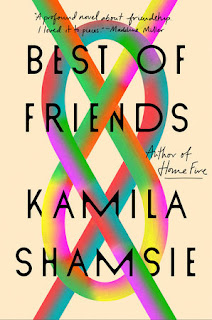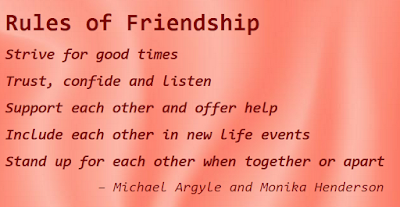Childhood. Religion. Nature. Love. Each have a magical, spiritual quality, the memories of which can haunt for a lifetime.
The Magical Kingdom by Russell Banks, a story of early 20th-century Florida loosely based on true events, has a documentary feel. The book begins with a journalist rescuing a set of reel-to-reel tapes from the trash at a library in St. Cloud, all that is left of the life of Harley Mann. Two decades earlier, in 1971, Harley used a tape recorder to recount his unusual childhood. Lonely, old and unsettled, the narrator/protagonist warns that he is well practiced at masking his identity. “It’s as if I never learned to speak like the man I have in fact become, one of those White, lifelong, small-time Florida businessmen with no noticeable religious or political enthusiasm and no discernible class affiliation.”
Early experiences shape Harley’s ability to conceal and lie. His parents, devotees of philosopher John Ruskin, an early environmentalist and socialist, leave a failing commune in Indiana, where Harley enjoyed an idyllic childhood, for another struggling one in Georgia. The father, a skilled blacksmith, dies of typhoid soon afterward in 1901, leaving a pregnant wife and two sets of twin boys. From his deathbed, the father urges them to find work at a nearby plantation and designates 12-year-old Harley head of the family. The mother dismisses that notion, discouraging discussions or questions about their future.
As the family can no longer contribute to the struggling commune, the mother signs all up as indentured servants at Rosewell Plantation, where they are exploited and become mired in debt. The plantation was “the opening wound in a wounded life.” Harley felt “as if he had been cast out of Paradise to suffer and perish for having committed an unnamed sin.” He learns about power that came only from the owner’s “control of an unimaginable abundance of money and our lack of it and the terrible, almost unfathomable distance between the two.”
Harley describes those seven months “as responsible in some way for my lifelong garrulousness and secrecy, my consanguinity and pessimism, my easy sociability and solitude – my paradoxical, conflicted nature.”
Still, he feels intellectually and morally superior due to the teachings of John Rushkin and other philosophers, poets, and scientists. “[W]hen you’re a child you passively accept your parents’ and their friends’ view of reality, no matter how distorted by ideology or religion.” He observes seeds of inequality and discrimination. “When your worth as a human being is reduced solely to the value of your body’s capacity for labor, you tend to overvalue meaningless physical characteristics, like your body’s skin complexion, or hair texture or the shape of your nose and lips.” Other workers on the planation focus on racial differences, but Harley’s family feel only shame, “for we knew in our heart that those differences were meaningless.” Still, he also feels “different and distinct from everyone I knew and loved and from all the strangers in the world, for I was the child whose father’s dying words had made him the man of the house, separating him from the others, even from his mother, … charging him with a task he could never fulfill.”
The desperate mother, though not religious, reaches out to a Shaker community in central Florida, near Narcoossee, whose leader agrees to pay off the family’s debt. The belief in celibacy forced Shakers to recruit followers and adopt children who could stay or leave at age 21. “We were not quite free,” Harley concedes, only free to leave the plantation and join the Shaker community of New Bethany. Like the Rushkinites, the Shakers supported communal living, simple lifestyles, pacifism and gender and racial equality and stood by the principles of honesty, continence, faith, hope, charity, innocence, meekness, humility, prudence, thankfulness, patience, simplicity – along with celibacy. The Shakers separated children from parents, assigning them mentors for apprenticeships, and taught that people on the outside world were untrustworthy, living “only for the moment… acquisitive and materialistic and hungry for power and sensual gratification.”
Rescue by the Shakers was like Paradise restored. Harley promises himself “to find a way never to commit that unnamed sin again,” hoping that “the “Shakers would teach me how to name the sin and would show me all the ways to avoid committing it again.” He becomes judgmental, rigid, suggesting that “Anyone with a lifelong guilty conscience is likely to be a hair-splitting moralist, especially when it comes to other people’s behavior.” He insists that religion is not the source of his guilt. “It had to be my parents’ perfectionist utopian dream, the dream they shared with the hundreds of like-minded dreamers who surrounded them near and far, the dream that made me feel like a failure and weak and morally inadequate.”
Logical and intelligent, Harley refuses to just accept explanations from others and describes how, like every thoughtful child, he loathed hypocrisy. “A child knows himself to be powerless and thus the most likely member of the community to end up deprived of justice and truth and equality.” From the start, he is skeptical about the elder’s motivation – is it charity, a means to secure free labor, or desire for his mother?
Living with the Shakers the children once again work six hours per day, six days a week, with the profit from their unpaid labor much greater than the cost of support. “I have sometimes asked myself if it was exploitative and unnatural and cruel to work children that way. Exploitative yes…. But it was not unnatural or cruel” as farming communities expect children to work such hours. And the Shakers’ assignments were “interesting and instructive and rarely as onerous or dangerous as work in a factory or mill would have been.” The men and women who supervise apprenticeships are kind and patient, relaying skills and attitudes that “would prove useful to us for the rest of our lives.”
His mother becomes a compliant, happy stranger, and Harley questions the sincerity of such converts: “if truth be told, the majority of these supplicants were seeking reliable shelter and regular meals rather than everlasting life. If the price was abstinence from sex and all other stimulants, communal living and participation in Shaker rituals and customs, along with hard manual labor in the fields…, they were willing to pay it.”
Elder John Bennett selects Harley as a “favorite student, the one whose mind and heart he most wanted to influence.” He lends the boy books of the Western Canon, ones that other Shakers might have viewed as heretical, and teaches the boy how to bend those works with Shaker teachings. The man does discuss the materials or quiz him, “except with a casual, knowing reference to a specific notion or insight.” A former soldier and prison guard, John advises Harley that “You either surrender your freedom to the system, or you walk away from it. There’s no middle ground…. That’s why and how I became a Shaker.” Of course, such sentiment is true of any system. “His answer dazzled me both for its illusiveness and for its clarity. Elder John seemed to be saying that there was no essential difference between victim and victimizer, between the oppressed and the oppressor. That both were equally controlled by the system that created and maintained and enforced their relationship.”
An intelligent child raised within a rigid system might long to flee, yet Harley understood that John “was grooming me to be his successor…. And I wanted to be that person.” Again, he feels superior, “that old familiar feeling had made me into a secretive hypocrite, for I could not let go of it. Separateness and difference – I had come to embrace the feeling… my true self. Despite its discomfort, I have tried since then to preserve it at all costs. Separateness and difference.”
Such feelings lead Harley to break norms, and he falls in love with Sadie, who is seven years older. They carry on a furtive relationship, though he fears she may be doing the same with Elder John. Harley recognizes that if Sadie was so skillful at concealing her love affair with Harley from others, then she was capable of concealing secrets from him. “When one has taken up lying, as I had done, it’s natural to assume that everyone else is lying, too…. One cannot live a lie without believing that one is surrounded by liars and nothing is what it seems and no one is who he or she claims to be.”
Jealous, he comes to distrust Elder John in every way, as profiteer and potential rival. He determines the man is not tempted by winning. “For him, life was a contest in which his main goal was to best the other contestants. Making a profit was just one way to do that. People like Elder John make good capitalists, effective salesmen, and successful politicians, but poor religious leaders.” Harley was convinced that serving God required that “One must abandon the belief that life is a contest.” Harley eventually turns on the Elder John, reporting him for an act of euthanasia. John leaves for Fort Myers takes off, taking up another religion, starting an import-export business and entering Florida politics. The rest of the commune, struggling without leaders and its two best workers, shuns Harley before abandoning the commune and relocating to a larger colony in New York.
Harley lives off the land, taking on a few odd jobs, saving his money. Familiar with property histories throughout the county, he begins buying and selling land, while also accumulating the tracts that once belonged to the commune, a practice he had learned about after out-of-town Shaker leaders discover that Elder John profited from such purchases in fast-growing Florida. During the early part of the 20th century, banks were required to provide equity-free, low-interest loans enabling homeless war veterans to buy a five-acre plot and build a home. Such purchasers often failed to make payments, and speculators like John swooped in to buy the properties and resell for huge profits.
But Harley targets the commune’s former holdings, refusing to sell for decades: “allowing the marshes and palmetto return, the buildings collapse, and mold and animals creep in “until there remained nothing out there of our once-glorious plantation but scattered heaps of weed-and-kudzu-covered wreckage sinking into the muck and the returning waters of the no-longer ditched- and-drained swamp.”
Only a small portion of the book focuses on these adult activities.
Years later, regretting his lack of formal education, Harley ponders whether a different type of childhood might have led him to become a theologian or a philosopher. He becomes wealthy, though spends the rest of his life alone, an outsider without purpose. He regards himself once again as cast out of paradise – and the cause for the fall of one magic kingdom, a religious commune where he first fell in love, and the rise of another – Disneyland. Conflicted, he respects Shaker principles but does not believe. “What does it matter, anyhow, if my life remains a mystery to me. Who cares if Harley Mann dies without ever learning how or why his youthful delusions and follies are matched by those in his old age? Or why, in between, from youth to old age, he remained for all intents and purposes a Shaker without a Shaker family,” “a nonbelieving Believer, a Shaker pariah, a man in some perverse but fundamental way affirming the Shaker way of life by building his hut just beyond the closed and locked gate of New Bethany.”
Harley, failing to envision a development like Disney World, eventually sells the Shaker property with the condition that subdivision is forbidden for perpetuity.
The story ends with Harley’s loss of innocence and community. Childhood, with all its potential, curiosity, and magic, is our only real utopia.




